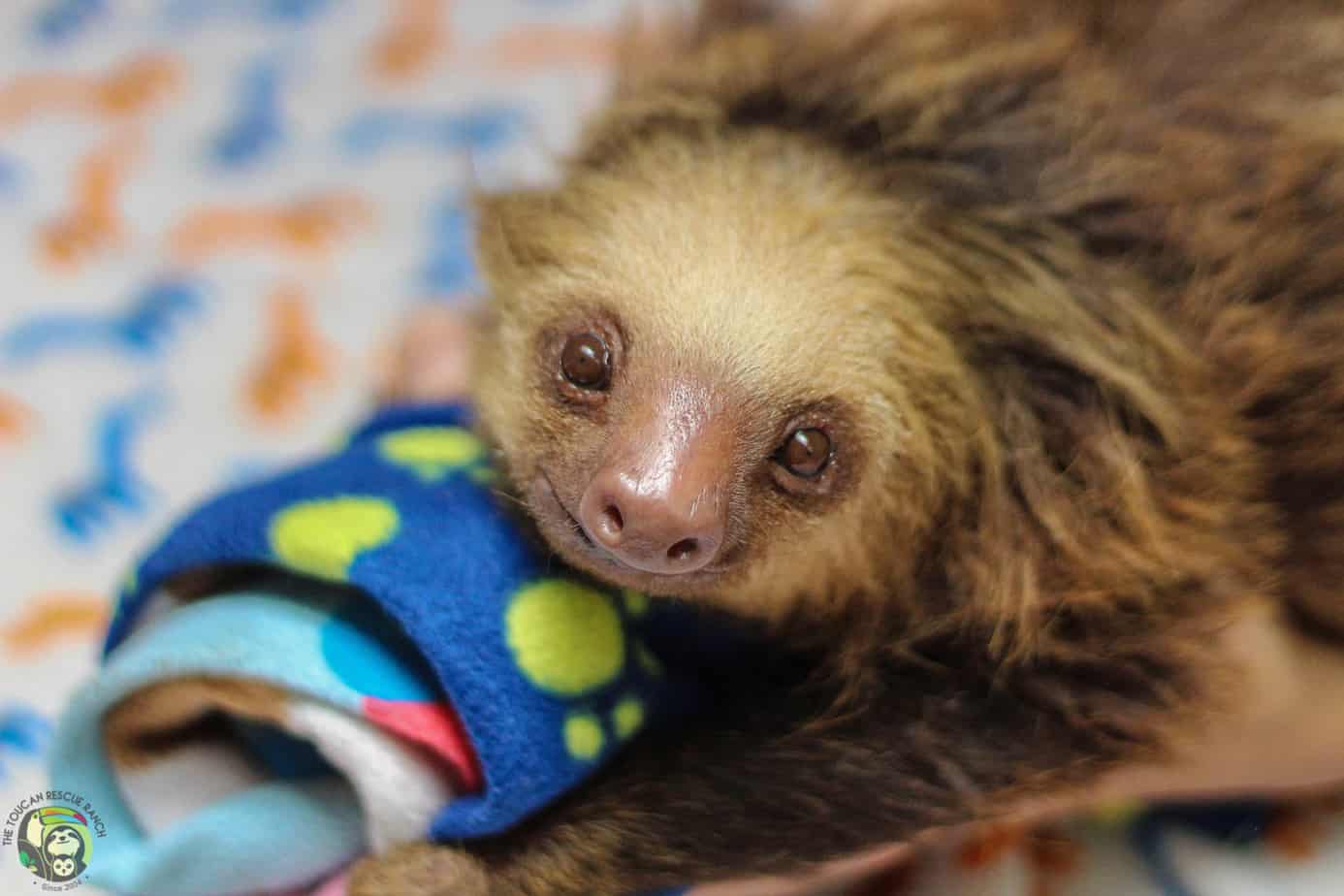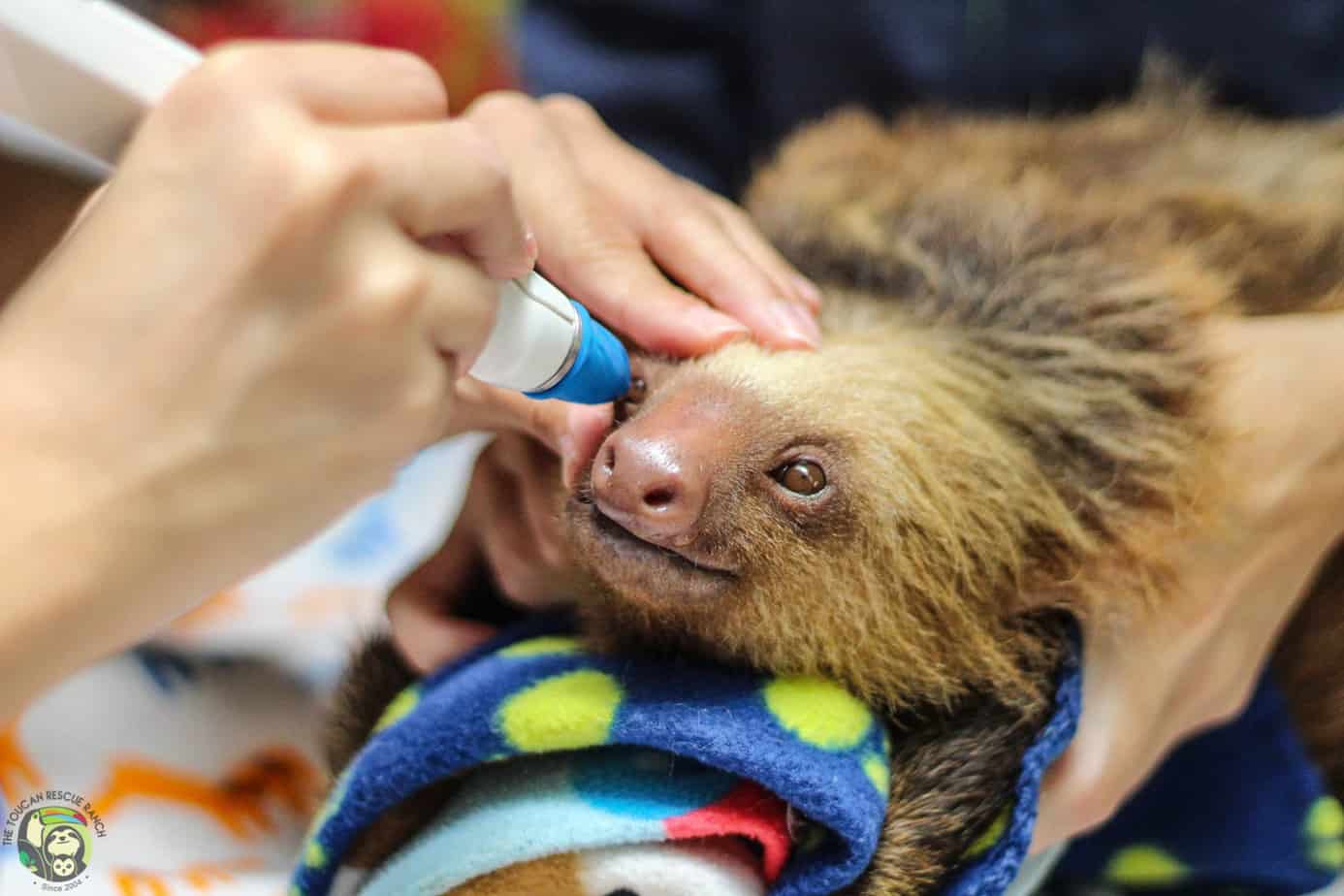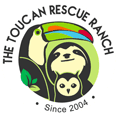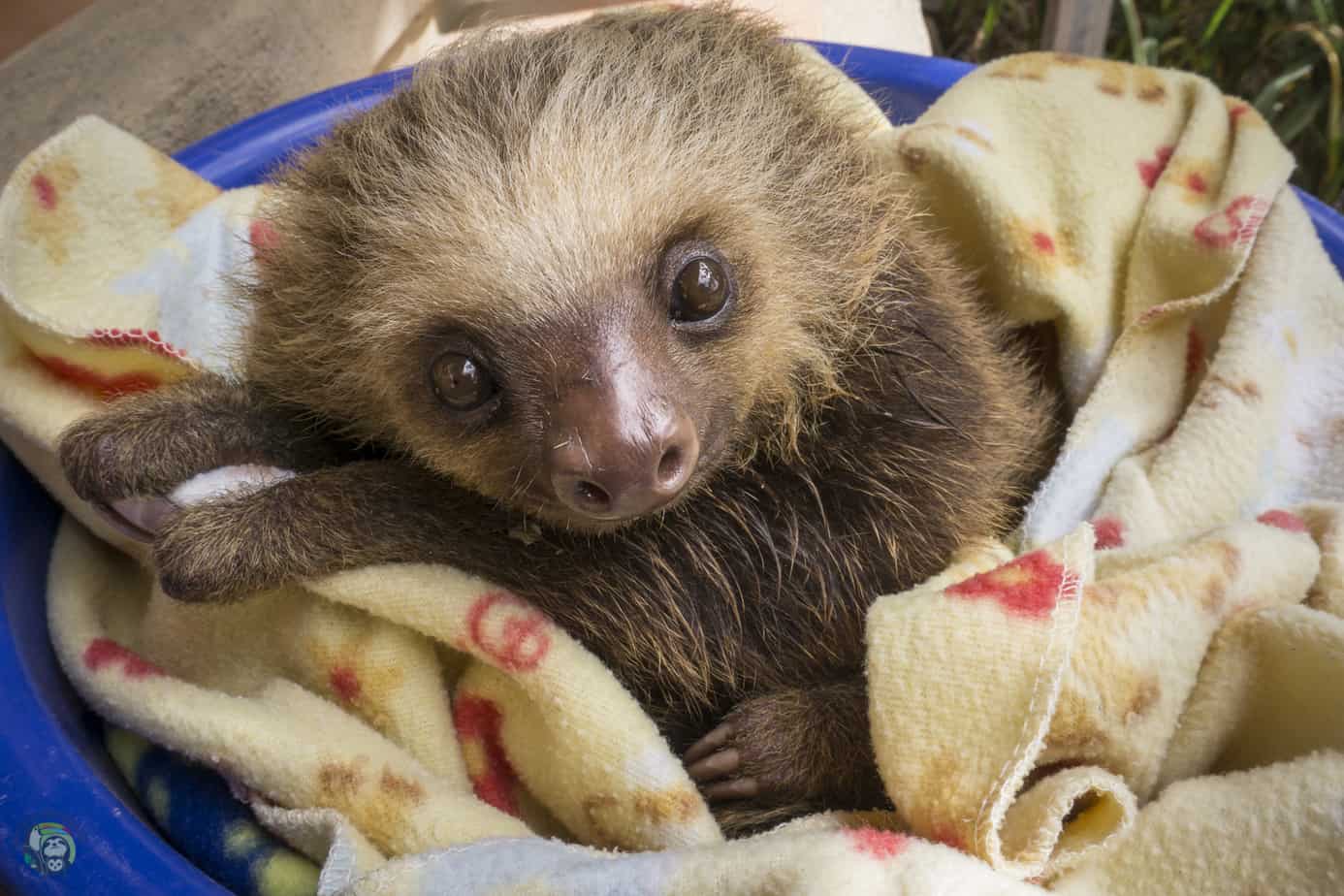We here at the Toucan Rescue Ranch receive many baby sloths for a variety of reasons.
All of them are orphans who have either lost their mothers — usually due to electrocution, dog attack or being hit by a car. Others are found lying on the ground, abandoned by their mothers for an unknown reason.
Some of these babies are newborns with their umbilical cord still attached, and others are premature, weighing between 200-300 grams. One such baby sloth arrived on our doorstep last June.
With a brown shock of hair, and a pointy little nose, she resembled Groot from “Guardians of the Galaxy,” but in keeping with the current candy-bar-names theme, she was named Snickers.

As with all baby sloths, she was fed raw goat’s milk with a dash of Pedialyte, using a 1 cc syringe with a tiny rubber nipple. (Syringes allow us to control the flow of a measured amount of milk as opposed to using bottles, which have an unpredictable flow.)
Snickers was a picky eater, who, at first, preferred cooked green beans to her milk, but she eventually came around and started drinking well. During this time, she was filmed for Animal Planet, but due to brand and copyright laws, her stage name became Cinnamon.
Eventually, other baby sloths joined Snickers in the nursery and formed a bond together. Sloths are typically solitary animals and would only spend time with another sloth in the case of a mother and baby. This relationship lasts two years, at which point, the baby separates from the mother and climbs away to become a wild, independent sloth. In the absence of their mother, the babies form tight bonds with each other.
We are a rehab and release facility and have a successful multi-step sloth release program called Saving Sloths Together. This means that all of the orphaned baby sloths that arrive on our doorstep are immediately placed in our two-year release program. Unfortunately, when Snickers was a few months old, we noticed that she was not climbing on the nursery area vines like her young counterparts.
After a few tests to determine her limb strength and interest in going from Point A to Point B, we realized that she had major vision problems. Interestingly, her eyes did not appear cloudy or obviously injured in any way, so we began monitoring her behavior to determine the extent of her impairment. It soon became obvious that she was completely blind. Recently, we had an ophthalmologist verify this after an examination revealed that she has cataracts in both of her eyes.

Sloths have very poor eyesight because their slow, secretive lifestyle doesn’t require good vision. They rely much more on their excellent sense of smell, so perhaps at one point, Snickers will prove to be a good release candidate.
At this point in her young life, she is able to maneuver her way through the various climbing structures that we have available for our growing sloths. Her hearing and sense of smell are excellent, and people on educational visits are always surprised to hear that the little fuzzy body, working its way along a vine is Snickers, our blind sloth.
Watching Snickers gives us an opportunity to study sloth intelligence more closely, especially when she is placed in new climbing situations with her peers. Her learning curve is quite impressive. Toucan Rescue Ranch would love to place a radio collar tracker on her someday and return her to the wild, but if that’s not possible, we hope she will be a great “auntie” sloth to our incoming babies. They can always use a cuddle or a lesson on finding the tastiest green beans in the dish — Snickers is good at that!
— Denise Gillen is a Sloth Nanny at Toucan Rescue Ranch
 This article was produced by The Toucan Rescue Ranch. The Toucan Rescue Ranch specializes in helping wild animals recover so that they can be reintroduced into the wild. For more information or to donate, visit the Toucan Rescue Ranch website.
This article was produced by The Toucan Rescue Ranch. The Toucan Rescue Ranch specializes in helping wild animals recover so that they can be reintroduced into the wild. For more information or to donate, visit the Toucan Rescue Ranch website.






